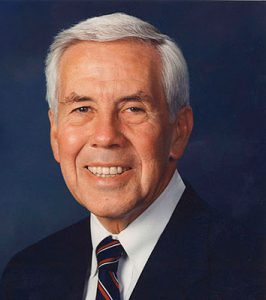Analysis: How stocks will fare in ruling on health care law
The Supreme Court is expected to rule on the Affordable Care Act by the end of June. Here’s a roundup of how health care businesses would be affected under four different scenarios.
The Supreme Court is expected to rule on the Affordable Care Act by the end of June. Here’s a roundup of how health care businesses would be affected under four different scenarios.
The U.S. Supreme Court did not hand down a ruling in the health care reform case Monday morning. The nine justices meet again Thursday, but most observers expect the decision to come June 25 or June 28.
Some of the nation's biggest health insurers will keep some popular parts of President Barack Obama's health care overhaul even if the law fails to survive U.S. Supreme Court scrutiny later this month. Indianapolis-based WellPoint will wait for the court ruling.
Even though employers expect the U.S. Supreme Court to strike down at least some of the 2010 health reform law later this month, few are actually doing any contingency planning.
The future of health insurance is lower profit margins and greater consumer control. WellPoint Inc. just bet $900 million on it.
Newly available data from private health insurance plans show that price hikes by hospitals, doctors and drug companies have kept employer spending rising recently even as their employees and dependents have moderated their consumption of health care services.
As St. Vincent Health has nearly doubled the number of physicians it employs over the past two years, the losses on those practices have mounted. And the same thing is happening at all the major Indianapolis hospital systems, as all have spent the past four years aggressively acquiring physician practices.
Myth prevents policymakers from attacking real problem of distributing funding.
The Indiana Supreme Court this week will consider whether hospital billing practices should be put on trial. The state’s highest court will hear oral arguments Thursday in a case in which two uninsured patients have sued Indiana University Health for charging them much higher prices than it would have charged insured patients.
Health care firms have opened a flurry of clinics at Hoosier employers the past two years as businesses increasingly embrace the concept as a way to restrain employee health costs.
Health insurance customers in Indiana will get an estimated $16.5 million in rebates this year, but the average amount received per person will be less than the national average and less than 3 percent of the total cost of coverage.
Indiana's hospital boards and trial lawyers are closely monitoring a lawsuit that accuses the state's largest hospital group of charging uninsured patients more for treatment than insured patients.
More than 3 million health insurance policyholders and thousands of employers will share $1.3 billion in rebates this year, thanks to health care reforms, a research group said Thursday. Indianapolis-based WellPoint Inc. is expected to return $94 million.
A group of 123 doctors, nurse practitioners and physician assistants have formed the Eskenazi Medical Group in order to focus on maximizing patient care and related bonus payments at Wishard Health Services.
More people have jobs and yet the use of health care remains stagnant—which should drive nice profits when WellPoint Inc. reports first-quarter earnings on Wednesday. The trends even have some wondering if consumer-driven health plans are finally starting to make a real difference in Americans’ health care spending habits.
Sam Gibbs is president of eHealth Government Solutions, part of California-based eHealthInsurance Services Inc. The company, founded in 1997, pioneered the sale of health insurance over the Internet. Gibbs spoke about the options for public and private health insurance exchanges, including the state-based exchanges mandated by the Patient Protection and Affordable Care Act.
Citigroup economist writes that U.S. health care sector "reminds us somewhat ominously of the bubble in housing finance" because public spending is fueling private profits.
The Indianapolis-based hospital system is working with Evansville-based St. Mary's Health System to mesh some of their corporate operations.
Wall Street's favorable reaction came not only because harsh questioning by the U.S. Supreme Court’s conservative justices put in doubt the health reform law’s mandate that all Americans buy health insurance, but also because the justices raised the possibility that they would strike down requirements that insurers accept all customers, regardless of health.

Like many Senate Republicans who have spent a few decades in Washington, U.S. Sen. Richard Lugar was for the individual health care mandate before he was against it. Two decades later, the policy is a near heretical stance among the party’s conservative base, and it threatens to derail Lugar’s reelection bid.